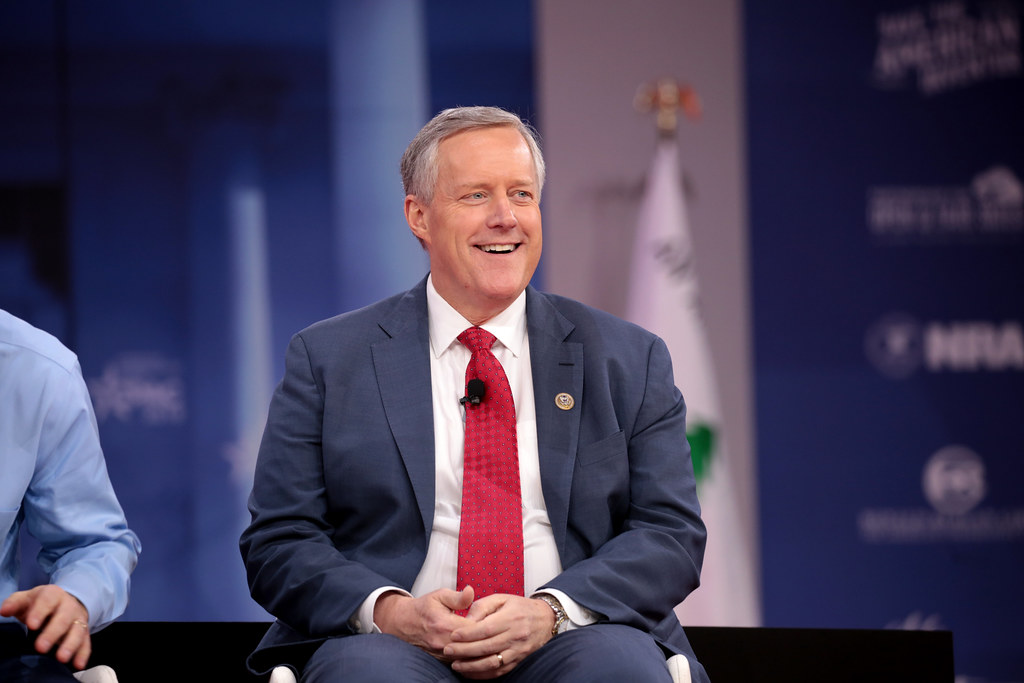Go Ahead, Apply the Federal Rules of Evidence to the Senate Impeachment Trial
Congressional Republicans argue that the Federal Rules of Evidence should apply to the impeachment trial. But following these rules would guarantee that the Senate could hear from the witnesses that Mitch McConnell is currently seeking to block.

Published by The Lawfare Institute
in Cooperation With

Nine of the president’s most devout supporters in the House of Representatives last month penned a letter to Chief Justice John Roberts, Sen. Mitch McConnell and Sen. Chuck Schumer formally requesting that the Senate adopt the Federal Rules of Evidence for the impeachment trial of President Trump. On Dec. 19, 2019, the day after the House voted to impeach the president, Republican representatives Mo Brooks, Jeff Duncan, Ted Yoho, Bob Gibbs, Debbie Lasko, Paul Gosar, Jody Hice, Neal Dunn and Mark Meadows wrote,
The Federal Rules of Evidence are the culmination of more than two centuries of judicial thought. They have been determined to best maximize the chance that judges and juries find the truth of a matter based solely on substantive, credible evidence (not personal opinions, hearsay, rumors or gossip—as was the case in House Speaker Nancy Pelosi’s House proceedings).
I was not asked to sign on to the letter, but I gladly would have.
Unlike the authors of the letter, I am not among the president’s defenders. In fact, I think it is abundantly clear that, at the very least, the president abused the powers of his office and has since sought to prevent Congress from investigating the affair. I do, however, know the Federal Rules of Evidence well enough to know that following them in the Senate would not have the effects the letter writers imagine—quite the opposite, in fact. Following the rules of evidence, rather, would guarantee that the House managers would get to hear from the witnesses that Mitch McConnell is currently seeking to block.
Throughout the impeachment inquiry, Republicans on and off Capitol Hill have consistently sought to discredit the whistleblower report and subsequent testimony by claiming that neither is based on firsthand knowledge and both are therefore hearsay. Hearsay is, of course, inadmissible as evidence in a court of law. So the point of the letter is that all of the voluminous evidence the House has amassed may not be admissible in a proper court proceeding.
But secondhand knowledge is not synonymous with hearsay. It becomes hearsay only when a party seeks to introduce the secondhand knowledge (Jim said the light was red) to stand for the truth asserted in the statement (the light was red).
So the authors of the letter are correct. If the Federal Rules of Evidence were adopted by the Senate, the House managers would not be able to introduce testimony (Bob told me that he heard the president say, “ABC”) to prove that the president actually said, “ABC.” There are many exceptions (23, to be exact) to the general hearsay rule.
There are additional exceptions to the hearsay rule where, to borrow from the example above, Bob is either practically or legally unavailable to deliver the statement, “I heard the president say, ‘ABC.’” In that scenario, the hearsay will be permitted because there is no other way to have the testimony put in evidence. More specifically, if an individual defies a subpoena—like so many in the Trump administration have done—they are unavailable and the hearsay becomes admissible.
Still, career officials would be able to describe their own experiences, the communications they had, the things they heard the president say or how they understood the situation in which they operated and how it affected the way they acted.
But the rules of evidence do some other things too. Under Rules 401 and 402, all relevant evidence is admissible, and irrelevant evidence is not. The test for relevancy is whether the evidence that one party seeks to present (a) has a tendency to make a fact more or less probable than it would be without the evidence and (b) is a fact of consequence.
Note that this test also means that the evidence introduced could not just consist of baseless conspiracy theories, character smears and falsehoods. It must tend to either prove or disprove that the president abused his power or obstructed Congress, not present information unrelated to the ultimate question. Evidence that certain Democrats have been trying to impeach President Trump for three years is irrelevant to answering whether the president abused his power in this scenario. Likewise, evidence of the president’s business dealings in Russia and Ukraine, however problematic, are irrelevant to this inquiry.
Perhaps more importantly, under Rule 601, parties can call any and all witnesses they want to testify, as long as the witness has personal knowledge of the matter they are to testify about. Parties cannot object to the calling of certain witnesses. So the House managers would get to call John Bolton, Mick Mulvaney, Michael Duffey and others. The president’s attorneys may then try to call Joe and Hunter Biden, as well as Rep. Adam Schiff. The president has repeatedly said that he would want these three men to testify during an impeachment trial. These men, however, are not likely to have any knowledge that would make it more or less likely that the president committed the acts he has been impeached for.
Since this trial would involve the president, he would generally be entitled to certain privileges that courts have determined the president may exercise. But as mentioned before, the rules also provide that if someone is unavailable to testify, then hearsay may be used to introduce evidence. So if in response to a subpoena directed toward someone in the White House, the president asserts executive privilege to prevent that person from testifying, that person would be “unavailable” under Rule 804 and someone else might be permitted to testify in their place.
For example, if Mr. Smith hears the president say, “ABC,” and thereafter tells a third party, “The president said, ‘ABC,’” the third party could be called to say, “Mr. Smith told me that the president said, ‘ABC,’” if the president prevents Mr. Smith from testifying himself.
Then there’s Rule 801(d)(2), which provides that, in certain situations, a statement made out of court by an opposing party can be offered as evidence against the party. It is a means of introducing previous statements attributable to and offered as substantive evidence against a party opponent; here, that would be President Trump. This rule may enable House managers to enter Trump’s own statements into evidence. This would allow John Bolton or Gordon Sondland, for example, to directly testify about what they heard the president say. This is based on the belief that parties cannot seriously claim that their own statements should be excluded because they were not made under oath or subject to cross-examination.
Rule 102 explains that these evidentiary rules exist to ascertain the truth and secure a just determination. If adopted by the Senate and implemented in good faith by Chief Justice Roberts, the rules will provide the basis for a fair trial that all should regard as conclusive on the matter, regardless of whether the Senate convicts or acquits.
So, yeah, count me with Paul Gosar and Mark Meadows and the others. If it turns out that the entire case against the president is premised solely on inadmissible hearsay, then like all defendants in suits criminal or civil, the president should be acquitted of the charges. But the flip side of that coin is that the Senate should actually hear all the evidence the federal rules would allow the managers to present.




